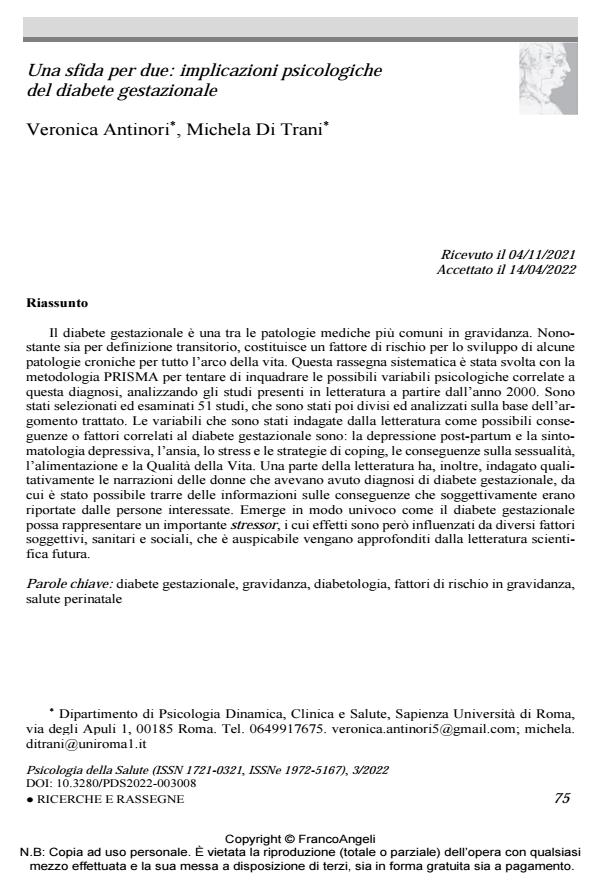A challenge for two: psychological implications of gestational diabetes
Journal title PSICOLOGIA DELLA SALUTE
Author/s Veronica Antinori, Michela Di Trani
Publishing Year 2022 Issue 2022/3
Language Italian Pages 21 P. 75-95 File size 309 KB
DOI 10.3280/PDS2022-003008
DOI is like a bar code for intellectual property: to have more infomation
click here
Below, you can see the article first page
If you want to buy this article in PDF format, you can do it, following the instructions to buy download credits

FrancoAngeli is member of Publishers International Linking Association, Inc (PILA), a not-for-profit association which run the CrossRef service enabling links to and from online scholarly content.
The gestational diabetes is among the most common medical conditions during pregnancy. Even though it is temporary by definition, it constitutes a risk factor for the development of some chronic conditions throughout the whole life. This systematic review has been driven with the PRISMA method, to try to frame the possible psychological variables related to this diagnosis, by analyzing the studies available in literature starting from 2000. 51 studies have been selected and examined and then divided and analyzed on the basis of the topic. The varia-bles investigated by literature as possible outcomes or factors related to gestational diabetes are: post-partum depression and depressive symptomatology, anxiety, stress and coping strat-egies, impacts on sexuality, nutrition and Quality of Life. Moreover, some literature has inves-tigated qualitatively the narratives of women who were diagnosed with gestational diabetes, from which it was possible to obtain information on the outcomes which were subjectively reported by the involved people. The fact that gestational diabetes can represent a relevant stressor arises uniquely, even though it is influenced by several subjective, healthcare-related and social factors which are advisable to be deepened by future scientific literature.
Keywords: gestational diabetes, pregnancy, diabetology, risk factors in pregnancy, perinatal health
Veronica Antinori, Michela Di Trani, Una sfida per due: implicazioni psicologiche del diabete gestazionale in "PSICOLOGIA DELLA SALUTE" 3/2022, pp 75-95, DOI: 10.3280/PDS2022-003008